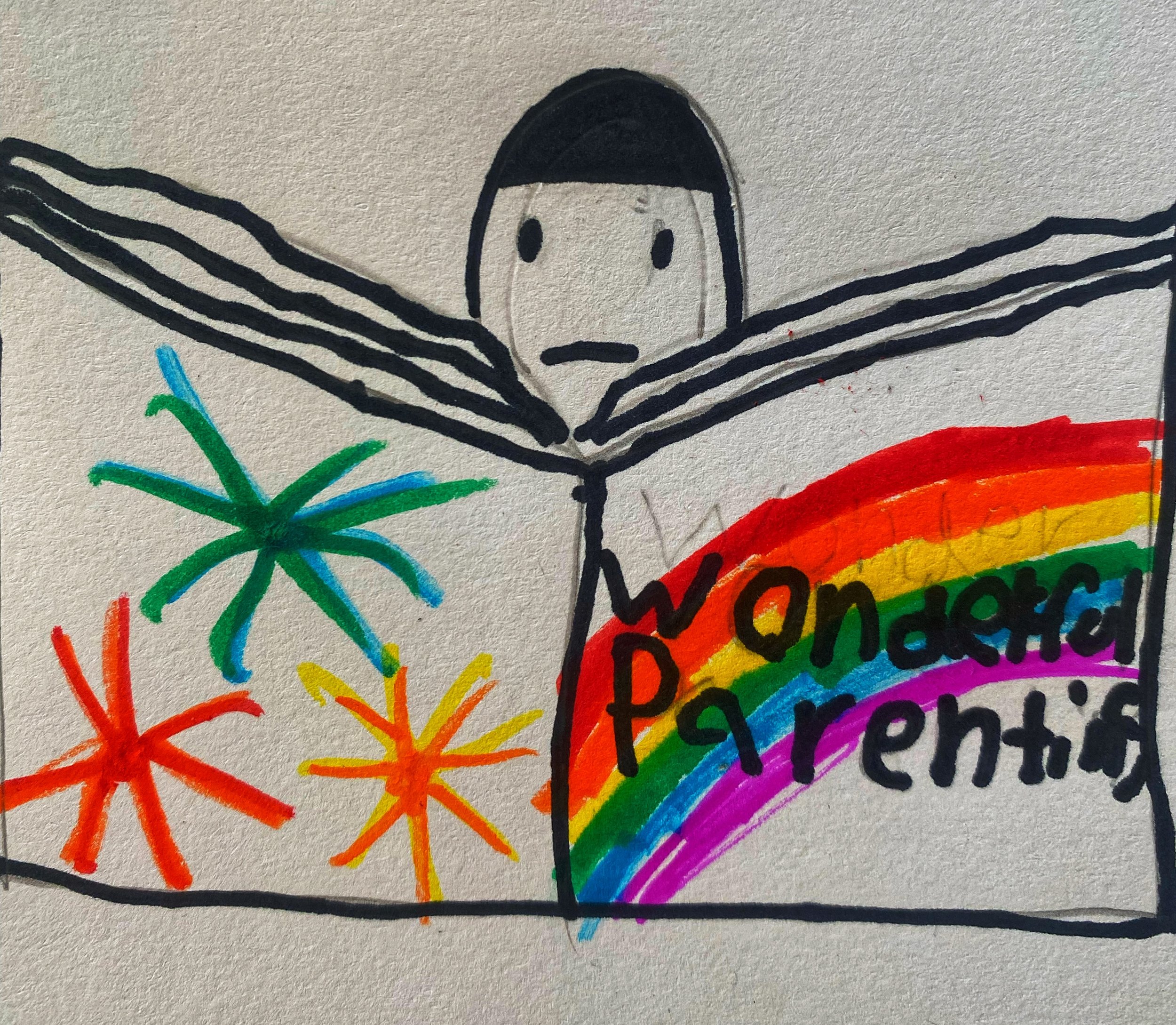
The Blog
Truth in Parenting
Tearing your hair out over lack of sleep, daycare decisions, homework enforcement, or what to do with the toddler tantrum? Want to feel better about your own tantrum as you try and manage it all? Read my Truth in Parenting blog for evidence-based reassurance (The Art and Science of . . . ), my own True Mom Confessions, and get a sneak peek of what my book offers with Autonomy-Supportive Parenting Diaries. Not sure where to start? Try here.
Get the Art & Science of Mom in your inbox
Youth Sports in Overdrive: Is it Worth it?
It seems that if our kids want to play a sport, there’s no other option besides doing it at ultra-high competition levels starting at young ages. This requires many hours and even more dollars. Say goodbye to family dinners, family vacations, and college savings, all in the name of . . . what exactly?
Moms and Sleep
I would venture to say (very non-scientifically) that becoming a mother may be the biggest risk factor for sleep problems. Think about it – from pregnancy hormones, discomfort, and worry, to the newborn “sleep” cycle totally incompatible with feeling human, to 4-year-olds running screaming into your room at 2 a.m. (oh is that just mine? It’s like a horror movie scene every time), to worrying about your teenage kids not home yet, our children hijack our sleep.
The Motherhood Identity: Being Not Mom
I offer to new mothers and mothers struggling with finding time for themselves, a list of 5 reasons why it’s good for you to be Not Mom.
Autonomy-Supportive Parenting in the Real World: Homework Edition
For our homework conundrum, I aimed to balance what felt like several competing interests: nurturing my young son’s internal motivation for learning, respecting the teacher’s way of running her class, and coaching my child through doing things he doesn’t like. How do we achieve all this without homework turning into a daily power struggle?
Why and How to Be a Less Controlling Parent
The bottom line is if we want to raise children who feel autonomous in the world – a strong sense of self and self-worth, living by their values – we need to be less controlling. When we control less, our children experience more freedom to explore the why of behaviors, internalizing the purpose and meaning of doing what we want them to (like be on time) instead of learning to do a behavior just to please us or avoid punishment.
Autonomy-Supportive Parenting Strategies
Rooted in a theory about what all humans need for well-being (called Social Determination Theory and backed up by research), autonomy-supportive practices build autonomy, relatedness, and competence in our children. Further, they can be used flexibly within a framework, rather than a prescriptive, “you must do these 10 things all the time to raise an amazing child.”
What Is Autonomy-Supportive Parenting and Why Should You Care?
In regular person language, “supporting autonomy” means raising our children to understand their authentic selves, including developing self-respect, self-worth, behaving by values, the ability to self-govern, and feeling a sense of volition, or control over choices and actions. The goal is to parent without oppressing our child’s authentic sense of self. Sounds good, right? But how does it work?
The Best Parenting Books for Science-Loving, Tired Parents
Be assured that the only parenting books to make this list include relatable, compassionate, non-judgmental, thoughtful, useful, practical, and -- super important to me – science-backed guidance.
Translating the Science of Parenting for Real Life
Let’s add some calm, confidence, and reason back into our angst by answering these questions: 1. What do we really know from parenting science? 2. How do we spot the “fake parenting news?” 3. What’s true for my child and family?
How Much Control Do We Really Have as Parents?
The danger of our modern parenting culture is that the worries and over-analysis can turn into a noisy traffic jam in our brains, paralyzing us and stressing us out. Hint: the more stressed we are, the more controlling we usually become.
How we promote calm and wellness in our parenting selves comes back to balance. How? Let go of what is likely unhelpful worries (eg, your 3-year-old who doesn’t want to potty train will eventually use the toilet), to better focus your energies.
Yoga-Informed Parenting?
I will spare you the scientific definitions of psychological flexibility, and offer one that fits our parenting worlds: flexibility means adapting to the present moment when things aren’t going well. Instead of sticking to our own ideas of what should or must happen, we can shift our thinking and behaviors to better meet the moment, and our child.
How to Find the Right Discipline Formula for Your Family
I have seen recent parenting approaches vilifying some forms of discipline, leaving parents adrift, contemplating “do I even try and discipline my kids?” As long as we stay focused on the ultimate why of discipline as teaching our children, however, the what and how involves a constant experiment of what works, with which child, at which age. As part of my parent first parenting approach, this blog post continues the beat of the drum that we all need to figure out what works best in our own families. It’s not about the tool or strategy itself as much as it’s about the fit with your child and family.
The Real Self-Care: When and How to Say No, Reclaim Your Time, and Yourself
As I am a complete human being all on my own, and do not need the constant company of my children to be whole, I have had to figure out boundaries between us. How can I be the connected, available, supportive mother I value, while also being the rest of me? If there’s anything I’ve learned as a mother, it’s that being one can become all-consuming. If I let it. And for the sake of my wellness and being the kind of mother I want to be, I need boundaries.
A Guide to Child Development and Grief
If we open our eyes to it, grief is everywhere. That is why grief in childhood can actually be a gift as it allows children the opportunity to develop ways to manage grief that will help them throughout their lives. And the best news is that you are there to help them do it.
Perfectionism In Parenting
My greatest fear is letting down my children in a fundamental, formative way that probably has nothing to do with sugary snacks and screen time. Part of the fabric of perfectionism? Control. Or more accurately, the illusion of control.
Empathy and Buckets: Finding Emotional Authenticity in Parenting
In this blog post, I explore the benefits of parenting with emotional authenticity, including why we should all be expressing instead of repressing, the role of yelling, and allowing rather than avoiding conflict,. When we support emotional authenticity in these ways, we give ourselves the gift of less pressure in parenting, and make way for our children to find the their own authentic selves.
Social Skills in Elementary School: Why They Matter and What We Can Do
The experiences of hurt and pain and joy and closeness teach our kids, and our kids need all of them to learn. We cannot (and should not) prevent the hardships, but we can be important “friendship coaches” -- if we can do it without too much whistle-blowing.
10 Reasons Why Leaving Kids for A Week Is A Good Idea
We planned our one-week 10th anniversary trip to Sedona, Arizona months in advance, when the abstract idea of the getaway felt magical. As the date got closer, though, I began to feel the panic rise about the reality of leaving the kids.
Our Children, Stress, and Mental Health: When to Worry and How to Get Help
When we worry about our children and wonder if they need professional support, it is often hard to discern when to take the next step. When is a tantrum no longer a normal toddler outburst? When are problems falling asleep more than “just a phase?” What kind of pre-teen emotional explosions are par for the developmental course, and what may signify a deeper problem?
When It's Too Much and Not "Good Enough:" Time for Change
When do we shift from an acceptance life approach to a fixing approach? When do we know how we are doing is in fact not “good enough,” and we need to strive for change? When we are drowning, when we have hit and surpassed burnout, when we are not the human or parent we know we can be, or want to be. When we are suffering, it’s time for change.




















